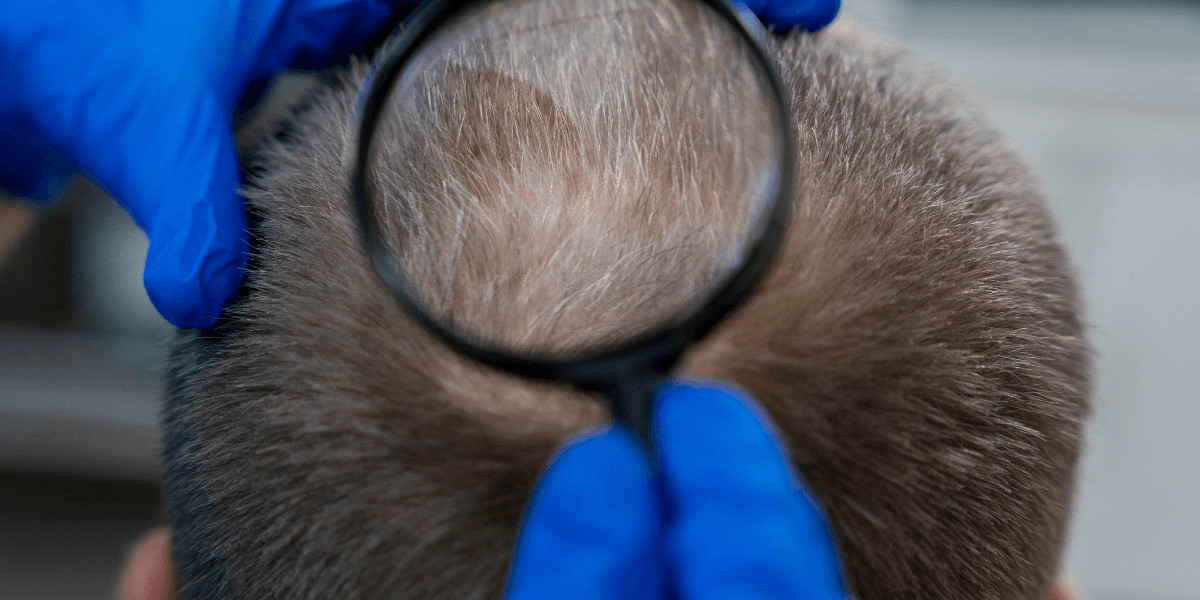Hair loss can be a daunting concern for many. With many safe, reliable, and result-oriented hair transplant procedures available globally, choosing the most suitable one requires consultation with an expert hair transplant surgeon.
Dr. Harikiran Chekuri, a leading hair transplant surgeon in Hyderabad, shares his insights on the available hair transplant options, viz., FUT, FUE, and Bio-FUE procedures. He observes a significant rise in the number of people opting for hair transplant procedures, not only due to the result-oriented outcomes of advanced hair transplant technology.
"Hair loss can profoundly impact an individual's self-esteem and overall quality of life. It's more than just a cosmetic concern; it affects one's confidence, social interactions, and professional opportunities," says Dr. Chekuri. "There is no reason for people to be apprehensive about hair transplant procedures. Early intervention, when hair loss is in its initial stages, can lead to a successful procedure and better outcomes."
Ms. Vishaka Goyal, the co-founder of ClinicSpots, a doctor discovery and healthcare platform, highly recommends Dr. Hari Kiran Chekuri. She states, 'He is an accomplished hair transplant surgeon who has performed thousands of hair transplant procedures for men and women. He attends to all his patients personally and ensures they are satisfied with their treatment experience at his clinics.'
Early Intervention for Better Outcomes
Dr. Chekuri advises seeking treatment early, potentially avoiding the need for a hair transplant altogether. He references the Hamilton-Norwood scale, which categorises hair loss into seven stages. Addressing hair loss in the earlier stages (1-3) allows for a more cost-effective approach.
Understanding the Procedure
Dr. Chekuri explains that an FUE hair transplant is a meticulous process that involves extracting hair follicles from a donor area (usually the back of the head) and implanting them into the balding or thinning areas. The procedure is performed under local anaesthesia. The patients can typically return to their daily activities within a few days.
Why Choose Hair Transplant in India?
India is a global hub for hair transplant procedures due to advanced techniques like Follicular Unit Extraction and Direct Hair Implantation, experienced and skilled surgeons, and personalised care. These clinics offer minimal scarring, faster recovery, and natural-looking results. India is an emerging medical tourism hub offering patients accredited and quality medical treatments.
The Growing Popularity of Hair Transplants Amongst the Young Generation
Dr. Chekuri notes a rising trend of younger individuals seeking hair transplant procedures in India. These individuals are image-conscious and keen to take corrective action to resolve their hair loss conditions. They have seen, read, and even heard about how successful hair transplant procedures are life-changers, boosting self-esteem and helping patients advance in their personal lives and careers.
Very Important: Choosing the Right Hair Transplant Expert:
Dr. Chekuri stresses the importance of selecting an experienced hair transplant surgeon. "The procedure's intricacy goes beyond simply implanting hair grafts. A skilled surgeon considers the extent of baldness, hairline design, direction, and overall image enhancement."
Referring to the above advice, he shares a story of Rita, a 28-year-old female patient dissatisfied with her earlier hair transplant procedure and wishing to opt for correction measures. The results of her earlier hair transplant procedures included an unnatural hairline, poor graft survival, and uneven growth of the hair graft.
She approached Dr. Hari Kiran Chekuri with her hair transplant woes. Upon checking her thoroughly, he recommended a revision hair transplant. He also emphasised the need to follow the post-procedure instructions to experience the best outcomes of the revision procedure. She agreed to the same. After six months of the procedure, Rita was delighted with its outcome. She experienced a smooth recovery with no complaints of swelling or discomfort, while her hair growth has been tremendous. She looks and feels much better after the revision hair transplant procedure.
For consultations or inquiries, contact Dr. Harikiran Chekuri at one of the Redefine Hair Transplant & Plastic Surgery Centre locations in Hyderabad:
Gachibowli address:
Redefine Hair Transplant & Plastic Surgery Centre
3rd Floor, Millennium Square,
Above Ratnadeep Supermarket, Lumbini Avenue,
Gachibowli, Hyderabad, Telangana 500032
Kothapet address:
Redefine Hair Transplant & Plastic Surgery Centre
3rd Floor, Axis Bank Building,
Beside OMNI Hospital, Kothapet' X' Road,
Road Number 2, Laxmi Nagar Colony,
Kothapet, Hyderabad, Telangana 500035
Kukatpally address:
Redefine Hair Transplant & Plastic Surgery Centre
1st Floor, Kapil Complex, 21/A,
Vasanth Nagar Main Rd, Dharma Reddy Colony Phase II,
Kukatpally Housing Board Colony, Kukatpally,
Hyderabad, Telangana 500072
About Dr. Hari Kiran Chekuri
Dr. Harikiran Chekuri, a renowned plastic surgeon, offers a comprehensive range of hair transplant and cosmetic surgery services. With over 19 years of experience and thousands of successful procedures, he is known for his warm and patient-centric approach. Dr. Chekuri founded Redefine Hair Transplant & Plastic Surgery Centre, one of Hyderabad's most trusted clinics. Each location boasts state-of-the-art facilities and a dedicated team committed to exceptional patient care.
The conventional perception of Turkey as the unrivalled "hair transplant capital of the world" is challenged as India garners attention for its burgeoning industry.
This holistic approach to care for unique needs further solidifies India's position as a global leader in hair restoration.
Experts emphasize the importance of professionalism and skill, highlighting India's abundant talent pool of surgeons who deliver exceptional results.
From sterilising instruments to using disposable materials, it is meticulously managed. This dual focus on instrument sterilization and disposability mitigates the risk of cross-contamination.
The growing demand for hair transplantation indicates a broader trend: the increasing prevalence of hair loss worldwide and the permanent solution.
While the procedure was traditionally associated with younger individuals in their 20s and 30s, there's been a noticeable uptick in older individuals opting for hair transplantation.
Hub for hair transplantation, the industry's future appears promising.
Glenda Kenneth vividly recalls the day she noticed that her hair was falling out. “I had my hair shoulder-length, and within six months of [moving to the U.S.] I had lost half of it,” she says.
Kenneth, a 38-year-old woman in Fort Worth, Texas, had just emigrated from Nigeria to attend graduate school when the issue began. Initially attributing her hair loss to stress, Kenneth tried various remedies, including her own homemade hair oils, but the problem persisted.
So she decided to cut her hair short and ditch the hair relaxers in favor of letting it grow naturally. Until 2023, she styled her hair in locks, but a month after undergoing back surgery, she noticed her hair thinning out even further. She wondered if this was linked to the anesthesia she received for that procedure. Though there isn’t clinical data behind this theory, some experts believe that anesthesia may trigger temporary hair loss. And since any major surgery can be a shock to your body, a procedure might also disrupt your hair growth cycle.
A visit to the dermatologist came with the scary diagnosis that Kenneth’s hair was not just falling out — she was apparently experiencing scarring on her scalp, which can be linked to hair follicle destruction. This led her to consider a hair transplant. “Every year, I do something to make me feel more beautiful. This would simply be another procedure I’d done to make me feel more confident,” Kenneth says. “Hair transplants are also an option for us women.”
Kenneth’s story is far from unique. Turkey is renowned as a global hub for medical tourism, and though those traveling for hair transplants have typically been men, women are also making the journey to reclaim their self-esteem with the procedures.
Estenove, a hair transplant clinic in Istanbul, shares that most of its female patients are between 25 and 34 years old, with a significant portion flying in from the United States. Each month, the clinic treats approximately 90 to 120 female patients, alongside 350 to 450 men. Though there are significantly fewer female clients, these numbers, nonetheless, seem to signal a growing trend: Women are embracing hair transplants (including eyebrow transplants) as a viable solution to hair loss, which is often hormonally driven for them, particularly in relation to menopause or childbirth.
Dr. Zafer Çetinkaya, a surgeon at Estenove with 10 years of hair transplant experience, explains the process: Women usually opt for DHI, or direct hair implantation; it takes six hours to complete and involves extracting hair follicles from a donor area before implanting them directly into thinning areas, without needing incisions.
“Most women do not need to shave their entire heads. Only the donor area might need a small shave, making the procedure less invasive and more discreet,” Çetinkaya says. But due to the extent of Kenneth’s hair loss, she was among the small percentage — between 5% and 10% — of female patients who need to shave their heads fully to get enough hair grafts to cover both their hairlines and crowns, Kenneth tells me two weeks after her procedure.
“People used to tell me, ‘Do you know your hair is thinning?’ Duh, I have a mirror,” Kenneth says. “I was so aware I began changing my hairstyles just to hide the hair loss.”
Kenneth also emphasizes how culturally attached she felt to her hair and how its style is connected to her Nigerian identity. “We have elaborate hairstyles. Your grandma or mom braids your hair. Even in school we get a hairstyle assigned to every week, and doing your hair is one of the to-dos before the holiday season. Saturdays are hair-washing days, while there’s a separate day for conditioning with shea butter,” Kenneth says. “It’s a whole thing. It’s ingrained in the culture.”
Hair texture plays a crucial role in the transplant process, especially for Black women. That’s why, when doing her research, Kenneth looked specifically for a clinic that shared before-and-after pictures of Black patients, particularly Black women. And that’s how she found Estenove.
“Our hair texture is different. Men just want their hairline back, but for us women, we want to get back to our hairstyles,” Kenneth says. “I still have my locks because I am planning to reattach them once my hair grows back.”
Denise Dykes, a 56-year-old real estate agent from Canada, also sought a hair and eyebrow transplant in Turkey. Since 2017, she struggled with hair loss linked to low progesterone levels from menopause, and she was desperate for a solution. “When I looked at the mirror, it was consuming me. I was receding like a man,” Dykes recounts, describing how uncomfortable she felt in front of the camera while updating her professional headshots. “I didn’t want to work with what I had. I wanted to get back what I had.”
After researching her options, she found that a hair transplant in Turkey was significantly more affordable than in Canada or the U.S. — even with travel costs included.
Initially, she considered stem cell treatments, which involve having stem cells injected into the scalp to facilitate the growth of new hair. But the price quote she received was prohibitive at $6,000 to $7,000 per shot, with six sessions.
Eventually, Dykes took the trip to turkey, with her 24-year-old daughter in tow for support. “The package included the procedure, airport pickup, hotel stay, aftercare, a three-month supply of hair vitamins, and clinical-grade shampoo,” she says. “It cost me $3,500, compared to nearly $10,000 in the U.S., where you might also get a separate bill for anesthesia.” An added bonus? Two weeks of vacation with her daughter.
Turkey’s appeal as a destination for medical tourism is multifaceted. As Estenove co-founder Murat Alsaç says, “It’s simple: Turkey offers cost-effectiveness, high-level medical expertise and world-renowned hospital infrastructure.” The experience Alsaç describes might come, at least partially, from the millions of patients who have reportedly visited the country for hair procedures in the past five years alone. Today, Turkey is something like a Silicon Valley for hair transplants.
Perhaps women are only just now beginning to embrace this reality because hair loss still carries so much stigma for them. Even when women do travel to Turkey and have great success, they may opt to stay silent about their procedures.
As a result of this lingering shame, there aren’t nearly enough before-and-after pictures for women. That’s why Dykes decided to share her journey online so openly by posting about the whole process on social media, along with progress pictures.
“So many people keep it on the down-low, like when a woman has had a tummy tuck after having a baby. So when a woman wants to [get cosmetic surgery] they don’t know where to go,” Dykes says. “I didn’t have anybody to go to. I don’t want that to happen to other women.”
Both Dykes and Kenneth underscore the transformative impact of their hair transplants, not just on their appearances but also on their confidence and self-esteem. Kenneth advises women experiencing hair loss to seriously consider the procedure. “Do it. If you don’t, you’ll forever have to hide your hair, wear wigs, hair extensions, but still feel self-conscious about it,” she says.
Dykes echoes this sentiment: “Women don’t think twice about breast implants or tummy tucks. Hair transplants should be the same.”
In a world where beauty standards often overlook the realities of hair loss among women, Kenneth and Dykes stand out as beacons of hope for those silently battling the stigma surrounding the issue. For them, opting for hair transplants in Turkey wasn’t just about restoring their hair; it was about challenging societal norms and reigniting their sense of identity.

















